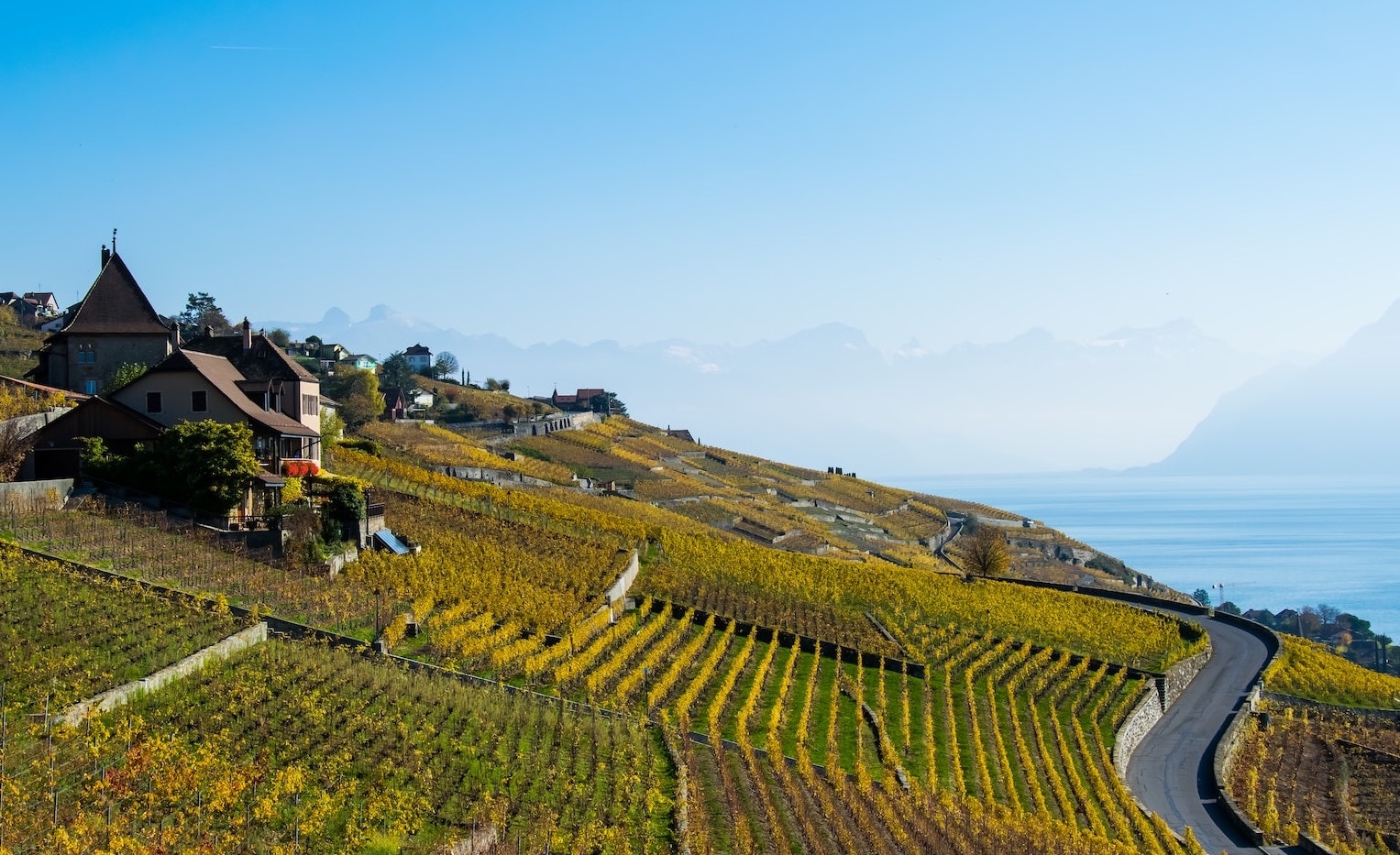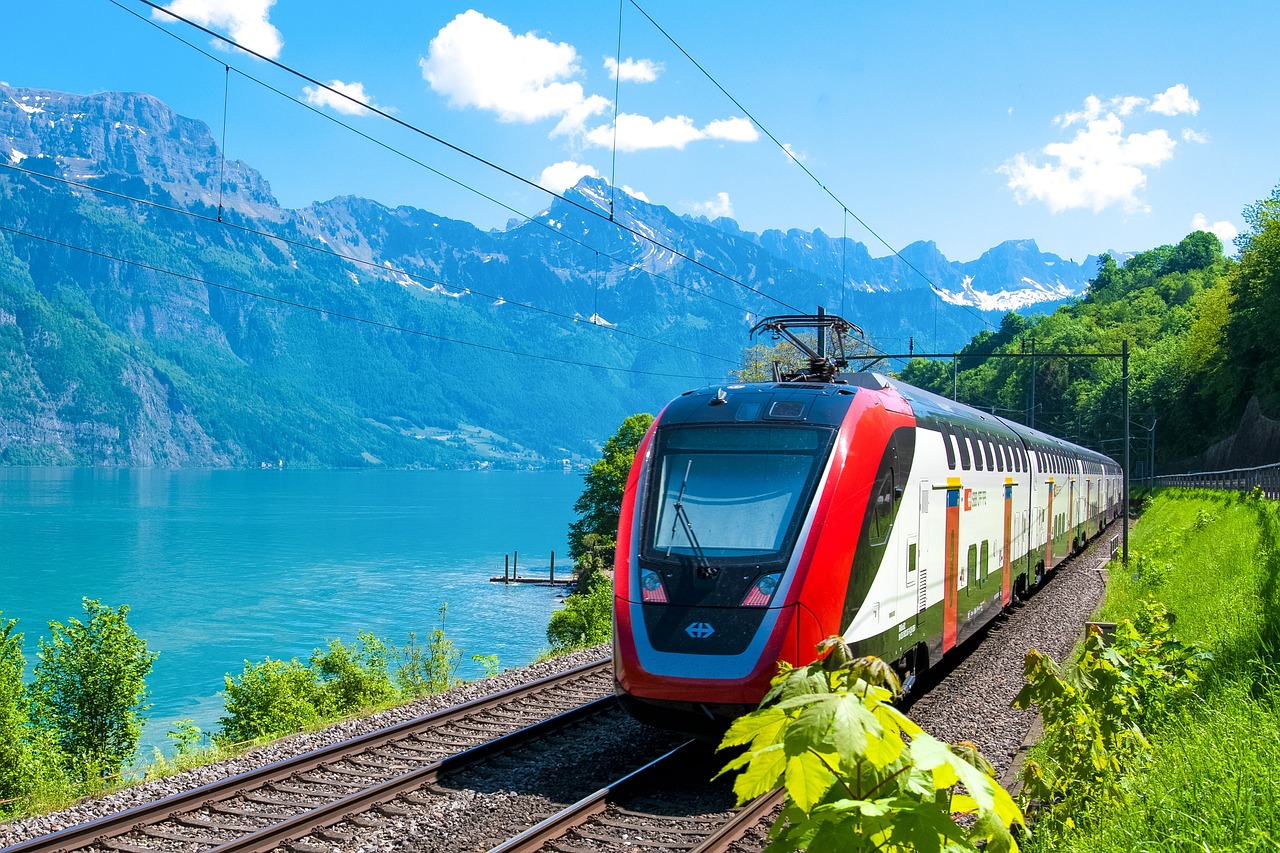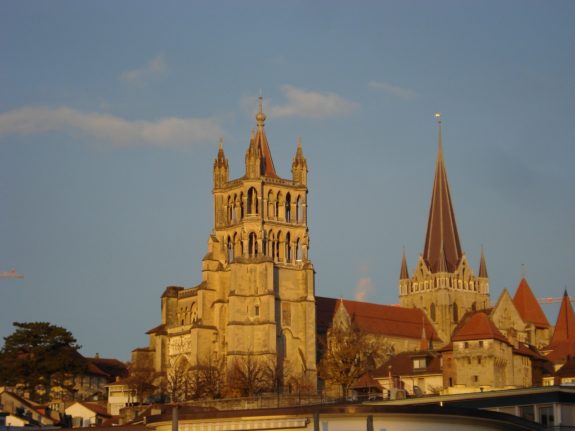“Vaud is one of the best places on earth to travel, live well, eat well, work well, have fun, cultivate yourself, play sports, take care of yourself, train and be amazed in an exceptional setting,” the canton’s promotional arm, aptly named Vaud Promotion, said in a press release.
The campaign’s goal is to make the qualities known in Switzerland and abroad, so that more people will want to partake of its charms.
What is so special about Vaud?
The canton offers numerous advantages, which attract many international residents to its towns and villages: in fact, more than 30 percent of the canton’s residents are foreigners.
These are some of them:
Geography
Vaud offers both mountains (called les Alpes vaudoises), as well as the famous Lake Geneva, locally called Lac Léman.
Among the most frequented ski resorts, Les Diablerets, is best known.
As for Lake Geneva / Lac Léman (which Switzerland shares with France), it is great for both boating and swimming.
Small, picturesque towns and villages that line its shore —Vevey and Montreux are among the most famous ones — are also very popular places to visit and live in.
Vineyards
Vaud has several wine-growing regions, where the Chasselas grape variety reigns.
The best-known vineyards wrap around Lake Geneva, with grapes often growing on sloping, terraced vineyards that descent toward the lake.
The one towards the west is called La Côte, and the eastward one is Le Lavaux, with the latter being designated as UNESCO’s World-Heritage site.

Lausanne
The Vaud’s capital city is a definite advantage.
It is very charming and picturesque, with its Old Town overlooking Lake Geneva and the French municipality of Evian on the other shore.
But don’t just take our word for it: one of the world’s best-known US media outlets, The New York Times, ranked Lausanne among 52 most beautiful destinations in the world.
It praised the city for its “spectacular views of Lake Geneva and an explosive architectural and artistic scene”.
READ ALSO: Why the Swiss city of Lausanne is so popular among foreigners
Commuter towns
Lausanne and Geneva are just 60 kilometres apart.
Between the two cities lie several towns and villages from where people commute to work in one city or another.
It is an easy commute by train or by car on the A9 motorway, both of which stretch along the lakeshore (which is to say that both rides are very scenic).
The most beautiful among these communities nestled between Lausanne and Geneva are Morges, Aubonne, and Nyon.

How is it really to live in Vaud?
As with everything else, opinions will differ.
Some people will love it and the others less so.
On the positive side, apart from the beauty of the region (as mentioned above), the canton also boasts excellent infrastructure.
For instance, the cantonal university hospital (CHUV) in Lausanne ranks among the world’s top-10 hospitals, which means canton’s residents have access to world-class healthcare.
Also, one of the country’s top educational and research institutions, EPFL, is located in Lausanne, providing vast opportunities for teachers and students alike.
On the negative side, Vaud’s taxes are among the highest in the country (in the third place, behind Geneva and Basel-Country), which is obviously not to everyone’s liking.
However, the canton’s benefits must largely outweigh its downsides, as a number of famous people, who could have lived anywhere in the world, chose Vaud as their home base.
Among them was Charlie Chaplin (who lived the last two decades of his life in the Vevey area), and Audrey Hepburn, who settled in a village of Tolochenaz near Lausanne.



 Please whitelist us to continue reading.
Please whitelist us to continue reading.
Member comments